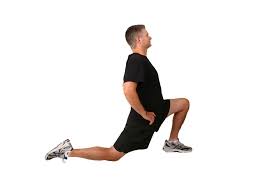stretch
英 [stretʃ]
美 [stretʃ]
- vt. 伸展,张开
- vi. 伸展
- adj. 可伸缩的
- n. 伸展,延伸
- n. (Stretch)人名;(英)斯特雷奇
使用频率:

记忆方法
1. 在大街(st)上呕吐(retch)的时候要伸展开身体。
2. 记忆方法: 使崛起——伸展
3. stretch---死拽尺、死拽起、死拽扯。
2. 记忆方法: 使崛起——伸展
3. stretch---死拽尺、死拽起、死拽扯。
中文词源
stretch 拉长,拉紧,伸展,延展,弹性,收缩性
来自古英语 streccan,拉长,伸出,展开,来自 Proto-Germanic*strakjana,展开,拉紧,可能来 自 PIE*strenk,紧的,拉紧,词源同 string,strain,strict.拼写比较 bake,batch.引申诸相关词义。
英语词源
- stretch
-
stretch: [OE] Stretch comes from a prehistoric West Germanic *strakkjan (source also of German strecken and Dutch strekken). This was formed from a base *strak-, which probably also produced English straggle [14]. It is not certain where *strak- came from, but probably it was an alteration of *strak- ‘rigid’ (source of English starch and stark).
Reversal of speech sounds (here a and r) is quite common; the process is known as metathesis. The notions of ‘rigidity’ and ‘stretching’ do not appear very compatible at first sight, but it is thought that the original application of stretch was to ‘stretching the limbs’, in the sense of making them straight or ‘stiff’. Straight comes from a former past participle of stretch.
=> straggle, straight - stretch (v.)
- Old English streccan (transitive and intransitive) "to stretch, spread out, prostrate; reach, extend" (past tense strehte, past participle streht), from Proto-Germanic *strakjanan (cognates: Danish strække, Swedish sträcka, Old Frisian strekka, Old High German strecchan, Middle Low German, Middle Dutch, Old High German, German strecken "to stretch, draw out"), perhaps a variant of the root of stark, or else from PIE root *strenk- "tight, narrow; pull tight, twist" (see string (n.)).
Meaning "to extend (the limbs or wings)" is from c. 1200; that of "to lay out for burial" is from early 13c. To stretch one's legs "take a walk" is from c. 1600. Meaning "to lengthen by force" first recorded late 14c.; figurative sense of "to enlarge beyond proper limits, exaggerate," is from 1550s. Stretch limo first attested 1973. Stretch marks is attested from 1960. Related: Stretched; stretching. - stretch (n.)
- late 12c., "expanse of land;" 1540s, "act of stretching," from stretch (v.); meaning "unbroken continuance of some activity" is first recorded 1660s; meaning "straightaway of a race course" (as in home stretch) is recorded from 1839.
权威例句
- 1. It is better to stretch the tight muscles first.
- 最好先伸展一下僵硬的肌肉。
- 2. I stopped at the square and got out to stretch my legs.
- 我在广场处停下来,下车活动活动腿脚。
- 3. I'm trying to move on and stretch myself with something different.
- 我正想换工作,想尝试点不一样的事情来挑战一下自己。
- 4. Stand straight and stretch the left hand to the right foot.
- 站直身体,伸左手够右脚.
- 5. Nearby there is a stretch of white sand beach perfect for sunbathing.
- 附近有一片白色沙滩,是沐日光浴的绝佳场所。
